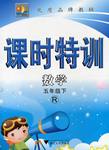题目内容
When I got back home I saw a message pinned to the door, ______ “Sorry to miss you; will call later.”
| A.read | B.reads | C.to read | D.reading |
D
解析试题分析:考查本句中read与saw是同时进行,I与read之间构成主动关系,故用现在分词作伴随状语。句意,当我回到家时,我看到贴着一张字条,上面写着“抱歉很想你,稍后打电话。”
考点:考查分词做状语。
点评:非谓语动词作状语。可以采用排除法。首先看它和句子主语之间的关系。不定式表将来,现在分词表主动进行,过去分词表被动完成。

 课课练江苏系列答案
课课练江苏系列答案 名牌中学课时作业系列答案
名牌中学课时作业系列答案 明天教育课时特训系列答案
明天教育课时特训系列答案 浙江新课程三维目标测评课时特训系列答案
浙江新课程三维目标测评课时特训系列答案Ten years ago I used to be very fit (健康的). I rode a bike to work and I got a lot of exercise at weekends. I used to play tennis a lot and go for long walks. In those days I didn’t earn very much. I had a job in an office. It wasn’t a very good job but I had a lot of time to do the things I enjoyed doing.
Then, about eight years ago, I got a much better job. The pay was better, but the hours were a lot longer. I bought a car and drove to work every day. I began to take people out to lunch. And I began to put on weight, too. I stopped playing tennis and going for long walks at weekends because I just didn’t have any time for things like that any more.
There’s a lot of stress (压力) in my job. Perhaps that’s why I started drinking more than I used to. For example, I used to have only half a glass of whisky when I got home, but then I started filling my glass to the top, and instead of having one glass, I would have several. I started smoking a lot, too. I never used to smoke at all.
Two months ago I had a heart attack. At first I just couldn’t believe it. Luckily it wasn’t very serious. The doctor advised me to stop smoking and to eat less. He also advised me to work less and get more exercise. But I just haven’t any time! My job takes everything out of me!
Sometimes I wonder if I should get another job. Perhaps I could do something like I used to do. But if I do that, I won’t earn as much. I have a family to support. I have to think of them, too. I just don’t know what I should do. What do you think?
1.Compared with ten years ago, what is worse for the author now?
|
A.His job. |
B.His pay. |
|
C.His means of transport. |
D.His health. |
2. According to the passage, when the author got the better job, which of the following is NOT true?
|
A.He got higher pay. |
|
B.His working hours weren’t long. |
|
C.He found it very stressful. |
|
D.He had little free time at weekends. |
3.After the author had a heart attack, the doctor advised him _____.
|
A.not to work any longer |
|
B.to take a long vacation abroad |
|
C.to stop smoking and take exercise |
|
D.not to eat out any more |